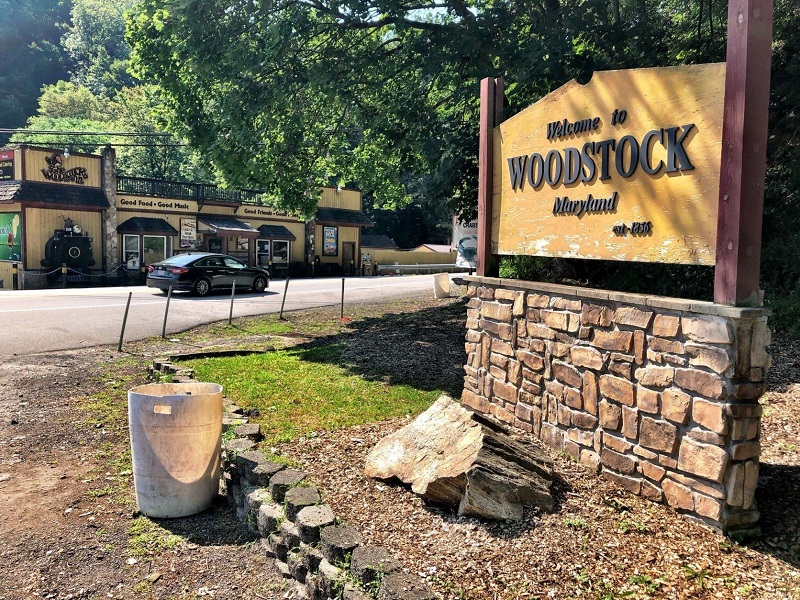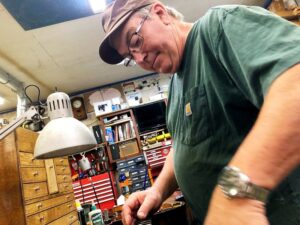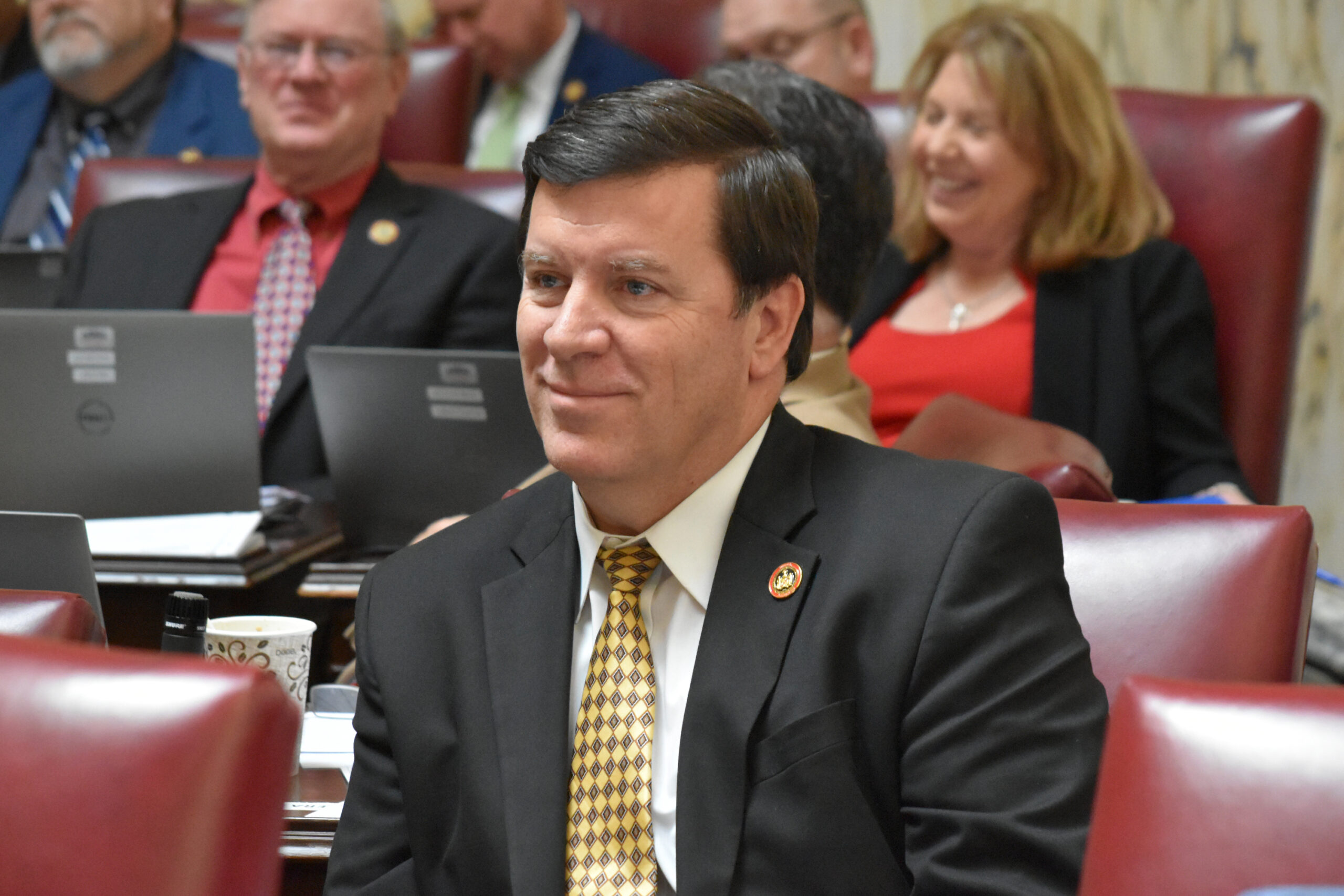Life in Woodstock, Md.: Untouched by Festival’s Sea of Madness

Organizers of Woodstock 50 abandoned plans Wednesday to orchestrate “3 days of peace and music” at Merriweather Post Pavilion, in Columbia — which would have marked the 50th anniversary of the legendary Upstate New York rock festival.
But 14 miles away, in a rural Maryland town, it’s Woodstock every day of the year.
John Warden’s guitar workshop, Warden Custom Guitars, is located next to the barn, on his property in Woodstock, Md. — population 6,986 — in Howard County, near its border with Baltimore County.
“Woodstock was the first stop for fuel, when steam locomotives were powered by wood,” Warden said. “So, there’s always a Woodstock around most major metropolitan cities.”
The B&O Railroad station in Woodstock, Md., was built in 1835. Granite quarries in and around Woodstock, including in the adjacent town of Granite, produced quartz used in the Library of Congress.
Warden, 66, began building and repairing guitars when he was 16 — about the same time as the original 1969 Woodstock festival, in Bethel, N.Y.
Over the years he’s been entrusted with repairing the acoustic instruments of some of the world’s best guitarists, ranging from classical virtuoso Andres Segovia to Nils Lofgren, the Bethesda-raised guitarist, best-known for his work in Bruce Springsteen’s E Street Band.
But, early in his career, Warden made his first connection with Woodstock.
“When I was in Columbus [Ohio], I worked on a [Martin] D-28 that Stephen Stills bought from Columbus Folk Music,” Warden said. “I was prepping it for sale.”

John Warden of Woodstock, Md., has worked on acoustic guitars owned by artists ranging from classical virtuoso Andres Segovia to Stephen Stills of Crosby, Stills, Nash and Young. WTOP News photo by Neal Augenstein
Stills’ acoustic guitar-playing during Crosby, Stills and Nash’s “Suite: Judy Blue Eyes,” is regarded as one of the highlights of the 1969 Woodstock.
“It needed a neck reset, and a new bridge,” Warden said. “He had played the guitar before it had the work done, and the sale was contingent on having the repairs done.”
While memories and stories differ about precisely which guitar Stills played during the original Woodstock, Warden has no problem remembering the Stills guitar he fine-tuned.
“It was a Brazilian rosewood D-28, that was about a 1947 or 48, and it was in really good shape,” he recalled.
In a workshop stocked with partially disassembled guitars and banjos, and power tools, files and lasers designed to make minuscule improvements in an instrument’s playability, Warden reflects on his interaction with Stills and other musicians in the 1960s.
“This goes back to when artists actually bought their own guitars,” Warden said. “Most people that were an artist bought their own guitar, they didn’t get one given to them” by a guitar company, as part of a sponsorship.
In the remote farm setting, and despite his obvious love and appreciation of music, the only sounds in his workshop are the humming of equipment and the rasp of infinitesimal particles of wood being shaved to perfect a guitar’s feel.
“I have a hard time working and listening to background music because I pay attention to the music,” he said.
Asked if he adjusts guitars to meet musicians’ preferences, his answer borders on a scoff: “It’s either right or it’s not. You can modify them to make them play toward somebody’s preferences, but if they’re right, that’s really a minor adjustment, and easy to do.”
Like most people, Warden’s initial introduction to the 1969 Woodstock was from the film.
“I thought Crosby, Stills, Nash and Young had taken the style of music that I was really interested in, and moved it forward — improved it,” he said.
And even though this year’s show apparently will not happen, Warden’s connection with the groundbreaking festival will continue.
“With my guitar repairing, having Woodstock in the address is appealing,” he said, with a wink.
As part of Maryland Matters’ content sharing agreement with WTOP, we feature this article from Neal Augenstein. Click here for the WTOP News website.
Did someone forward this to you?
Get your own daily morning news roundup in your inbox. Free. Sign up here.




 Creative Commons Attribution
Creative Commons Attribution